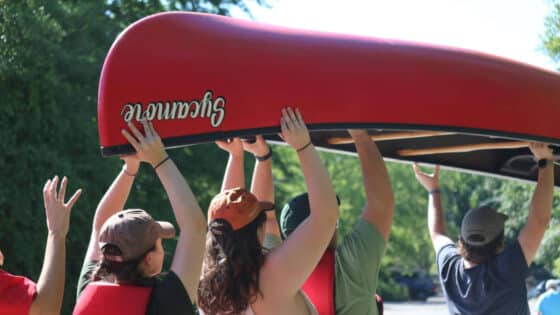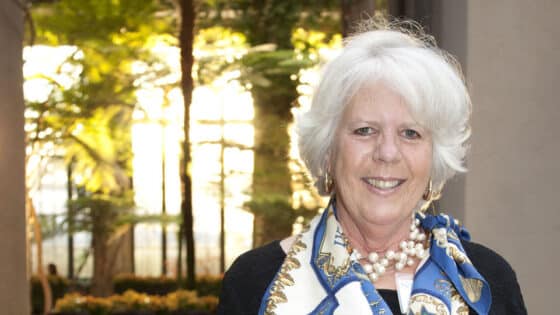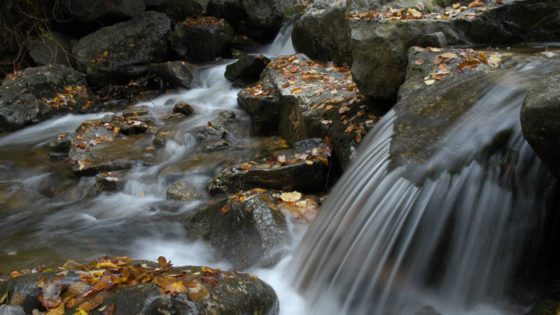Teacher Training Workshops Put the “S” in STEM
By Mandy Nix
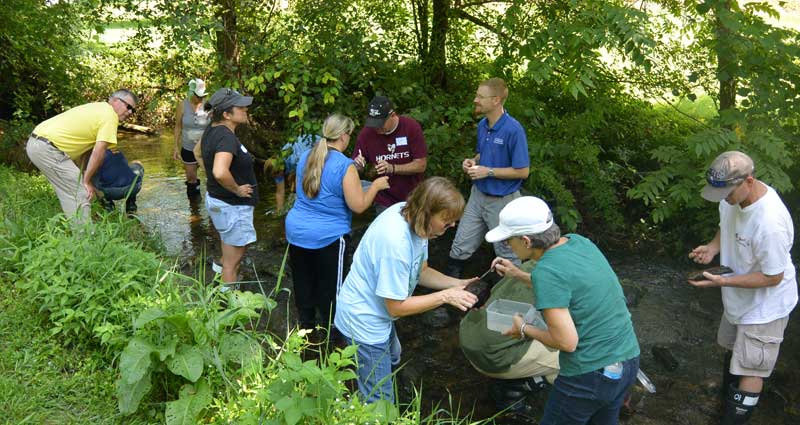
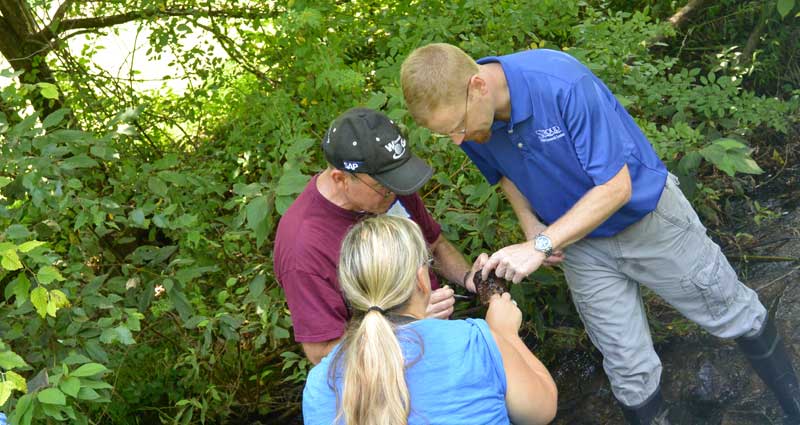
As 10 boot-clad educators waded through the East Branch of White Clay Creek on August 8, excitement buzzed through the air in tandem with cicada-song and 80-degree heat waves.
The outdoors were the classroom setting for Putting the “S” in STEM: Bioassessments and Water Chemistry to Determine Stream Health, one of the Stroud Center’s most recent boots-in-the-water workshops to advance professional development in science, technology, engineering, and math (STEM) for non-formal educators and classroom teachers alike. After jump-starting the morning with 21st century learning tools like Model My Watershed® from the WikiWatershed® toolkit, participants took their digital platforms into the field to log physical habitat, water chemistry, and aquatic macroinvertebrate data on the Water Quality App™.
One such participant was Linda Famigletti, a fourth-grade teacher from the Oxford Area School District who attended the workshop for insights on immersing her students in their backyard ecosystems.
“I’ve always been very environmentally concerned, so translating and teaching that to my students makes me feel like I’m helping raise more environmentally aware citizens,” Famigletti said.
Hands-On Approach to Science Education Fosters Lifelong Stewardship
By late morning in the Stroud Center’s indoor classroom, participants had traded stream water and sticky heat for identification keys and microscopes. Stroud Center educators showcased the classroom tools available for macroinvertebrate identification, but participants were already off, sorting stream bugs in a flurry of clanking petri dishes and excited whispers.
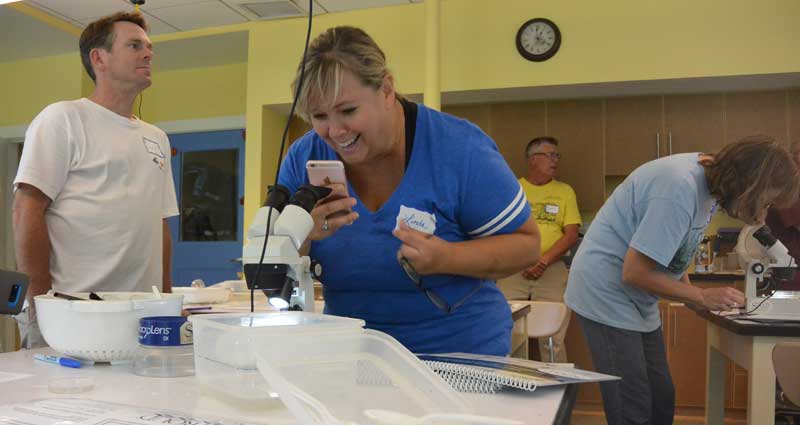

David Kline, a decade-long participant in Stroud Center programs and former teacher at the Montgomery School, believes this hands-on approach to science education can foster lifelong stewardship.
“They become empowered students who care about their creek and its water quality,” Kline reflected on his 14 years of experience in fourth- through sixth-grade science. “This translates back to what those students do as stewards in their own home and on their own property.”
Increasing environmental literacy is a chief goal of the teacher trainings, but Patricia Egner, Ed.D., who oversees school staff development at the Chester County Intermediate Unit (CCIU), said they also bolster curricula resources for teachers like Famigletti. “Watershed education is a large part of the fourth-grade curriculum and state testing, so this was a huge need among teachers,” Egner explained. “But it’s also a great focus for science teachers in general across biology, ecology, computer science, and many other [disciplines].”
Addressing a Shortage of STEM Training for Teachers
Recognizing a shortage of STEM training for teachers in Chester County, Egner and the CCIU began collaborating with Steve Kerlin, Ph.D., the Stroud Center’s director of education. This partnership between an Act 48 provider and the Stroud Center equips teachers with required continuing education credits while also filling an important gap in professional development.
“There are a lot of professional development opportunities for general topics in education — a lot of math, a lot of literacy — but fewer opportunities for science specifically,” Egner said. “These teacher trainings are step one to building that capacity within our own county to support our teachers.”
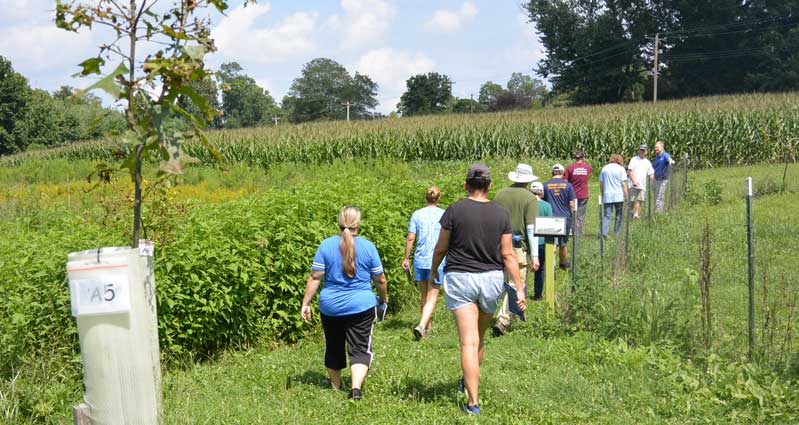
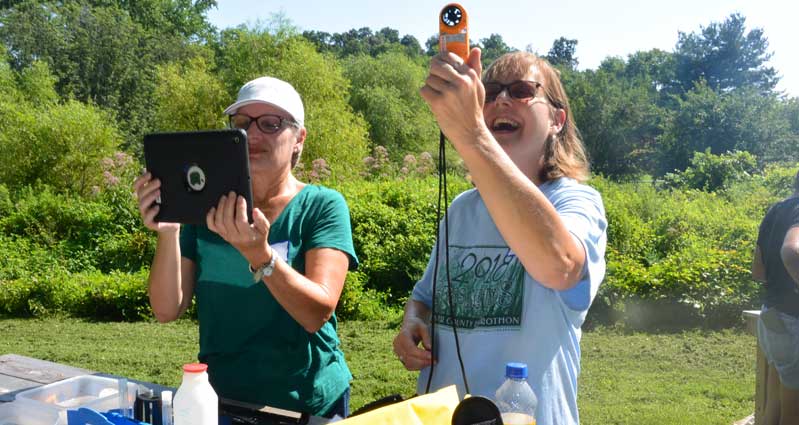
In the afternoon, workshop participants dove into stormwater conservation with another partner instrumental to the training’s success: Bert Myers, director of environmental education at the Pennsylvania Department of Environmental Protection (PA DEP). Myers engaged participants in a discussion of stormwater conservation strategies like streamside trees, rain gardens, and porous asphalt, all of which provide real-world solutions to stormwater runoff’s impacts on water quality.
“The issue of stormwater is so intertwined between the environment and human health,” Myers stressed. “Simply put, what’s good for wildlife in terms of water quality benefits humans and vice-versa. When storm and sewer systems are overwhelmed by a surge in stormwater, everyone loses in terms of water quality.”
Combined with the morning lessons on the physical, biological, and chemical stories of a stream, Myers’ focus on sustainable applications helped build an all-you-can-eat buffet of teaching topics. Famigletti, who expressed her hope of returning to the Stroud Center for a class field trip, is excited to translate this multifaceted portrait of natural resource health to her fourth-graders.
“I think that everything from air to water quality is vital to our future,” Famigletti said. “If we can model and educate sustainability for our students in any small way, shape, or form, I would rather promote that than most anything else in my classroom.”
The Future of Fresh Water Begins With Educators
Together with partners like the PA DEP and CCIU, the Stroud Center is celebrating that the future of fresh water begins with educators, the guiding forces of a new generation of stream stewards. “When formal and non-formal educators receive quality environmental professional development, this topic can spread through the multiplier effect,” Myers emphasized. “That means teaching a cadre of educators who in turn educate their charges, who pass these behaviors to the next generation so we ultimately have a human population who expects conservation measures as a matter of properly conducting business.”
Learn More
- View upcoming professional development workshops.
- Learn about our school and youth programs and scout programs.
- Do you own a Pennsylvania-based business? Find out how you can receive generous tax credits while helping to fund our education programs.

